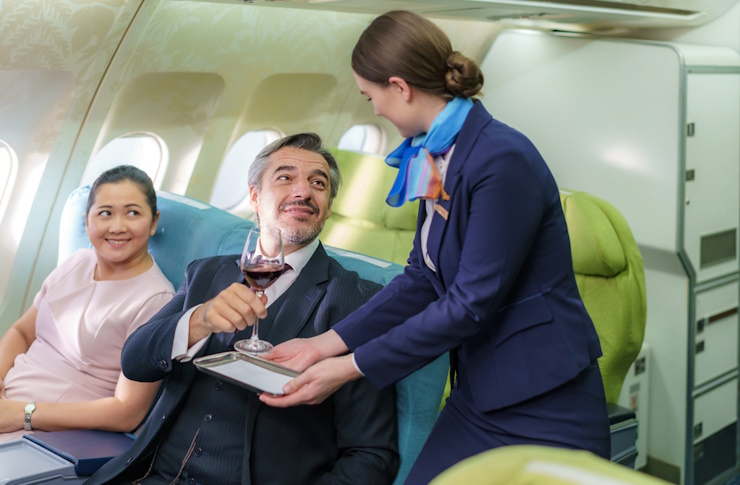What to Know About Private Jet Attendant Careers in 2025: Skills and Opportunities
Private jet attendant roles are evolving in 2025 with growing interest in elite customer service and safety roles within private aviation. This overview explains how individuals explore roles that blend luxury hospitality, in-flight safety, and discretion. From menu planning to maintaining high-end cabin environments, understand what many consider when weighing this career track.

How to Become Private Jet Stewardess: Essential Requirements
Breaking into private aviation careers requires specific qualifications and a strategic approach. Most employers expect candidates to have prior commercial flight attendant experience, though some entry-level positions exist for exceptional candidates. A high school diploma is the minimum educational requirement, though many employers prefer college degrees, particularly in hospitality, business, or related fields.
Physical requirements include the ability to lift heavy items, work in confined spaces, and maintain composure during turbulence or emergency situations. Age restrictions are generally more flexible than commercial airlines, with many corporate flight attendants working well into their fifties and beyond. Language skills prove invaluable, as clients often represent diverse international backgrounds.
Corporate Flight Attendant Training Programs and Certifications
Professional corporate flight attendant training encompasses both safety protocols and luxury service standards. The Federal Aviation Administration requires all flight attendants to complete initial training covering emergency procedures, first aid, and aircraft-specific safety systems. However, private aviation demands additional specialized training.
Leading training providers offer comprehensive programs covering fine dining service, wine knowledge, cultural sensitivity, and confidentiality protocols. Many programs include hands-on experience with various aircraft types, from light jets to large cabin aircraft. Recurrent training requirements ensure attendants stay current with safety regulations and service excellence standards. Some employers provide in-house training, while others require candidates to complete certification before hiring.
Luxury Flight Attendant Skills and Service Excellence
Success as a luxury flight attendant requires mastering both technical aviation skills and high-end hospitality services. Service excellence involves anticipating client needs, managing complex meal preparations, and coordinating ground transportation and accommodation arrangements. Many attendants develop expertise in areas like sommelier services, international cuisine, and personal concierge duties.
Communication skills prove crucial when interacting with diverse clientele, while discretion and confidentiality form the foundation of professional relationships. Technical skills include operating advanced galley equipment, managing cabin management systems, and coordinating with flight crews and ground support teams. Problem-solving abilities help handle unexpected situations, from medical emergencies to last-minute itinerary changes.
Private Aviation Career Opportunities and Growth Paths
Private aviation careers offer diverse advancement opportunities beyond traditional flight attendant roles. Experienced professionals may progress to chief flight attendant positions, managing multiple aircraft or training new team members. Some transition into flight department management, overseeing entire corporate aviation operations.
Specialized roles include international trip coordinators, who manage complex multi-country journeys, and VIP service managers, who develop relationships with repeat clients. Entrepreneurial opportunities exist for those establishing independent contract services or consulting firms. The growing fractional ownership and jet card markets create additional employment possibilities with companies managing multiple aircraft and client relationships.
| Training Provider | Program Duration | Cost Estimation | Key Features |
|---|---|---|---|
| FlightSafety International | 3-6 weeks | $8,000-$15,000 | FAA-approved, multiple aircraft types |
| Corporate Flight Attendant Training | 2-4 weeks | $6,000-$12,000 | Luxury service focus, job placement assistance |
| Aircare International | 1-3 weeks | $4,000-$9,000 | Flexible scheduling, online components |
| Private Jet Services Training | 2-3 weeks | $5,500-$11,000 | Hands-on experience, industry connections |
Prices, rates, or cost estimates mentioned in this article are based on the latest available information but may change over time. Independent research is advised before making financial decisions.
Salary Expectations and Compensation Packages
Compensation for private jet attendants varies significantly based on experience, aircraft type, and employer. Entry-level positions typically start between $40,000 and $60,000 annually, while experienced professionals earn $70,000 to $120,000 or more. International and specialized roles command premium salaries, sometimes exceeding $150,000 annually.
Many positions offer attractive benefit packages including health insurance, retirement contributions, and travel perks. Per-diem allowances for meals and lodging during trips provide additional compensation. Some employers offer performance bonuses, profit-sharing arrangements, or stock options. Contract positions may pay higher hourly rates without traditional benefits, appealing to experienced professionals seeking flexibility.
Private aviation careers in 2025 present exciting opportunities for service-oriented professionals seeking unique challenges and attractive compensation. Success requires dedication to continuous learning, exceptional service standards, and adaptability to evolving client needs. With proper training, relevant skills, and professional commitment, aspiring luxury flight attendants can build rewarding careers in this dynamic industry segment.




